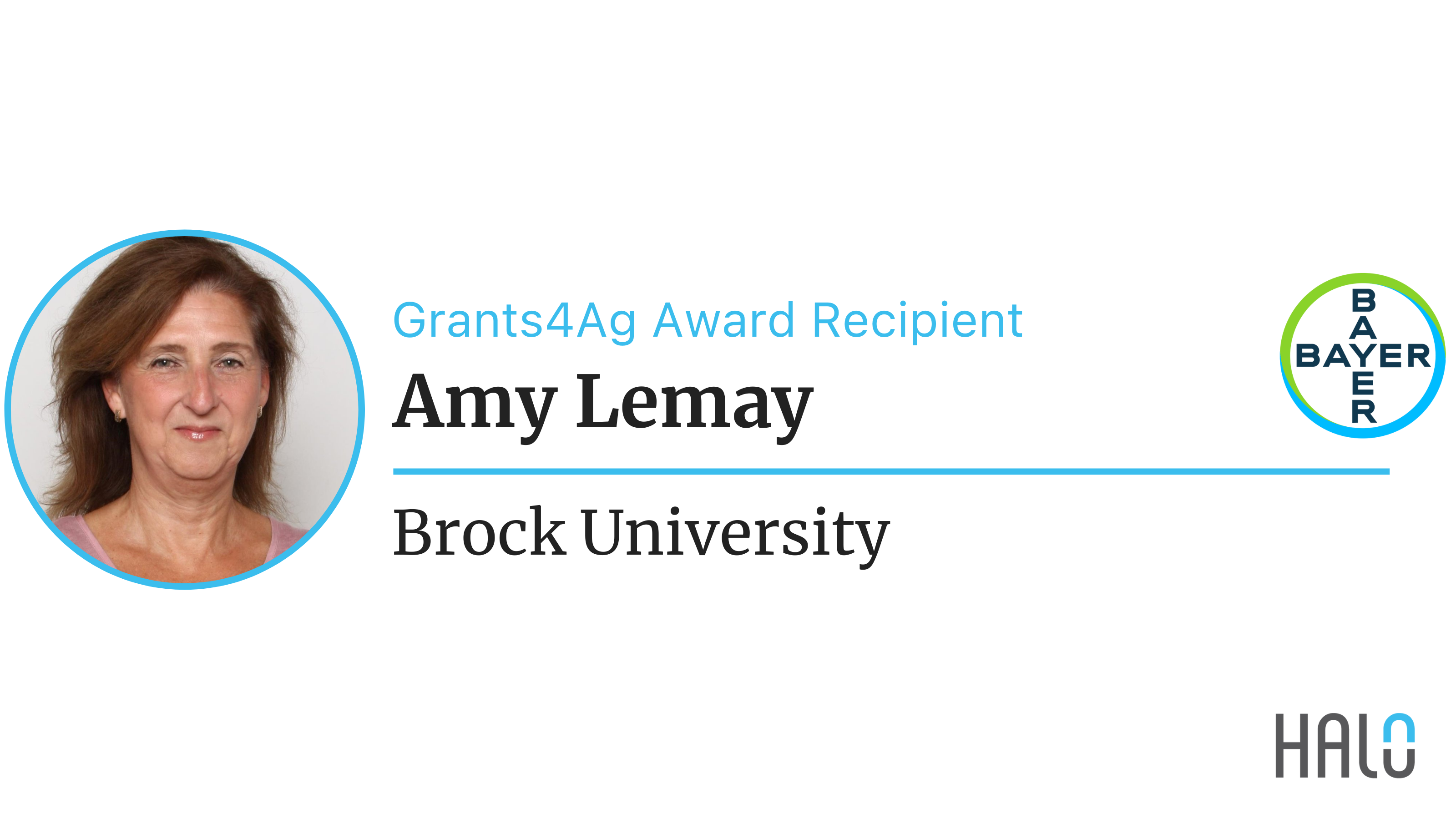Dr. Amy Lemay‘s research sits at the nexus of agricultural science and sociology. For Grants4Ag, she is investigating how farmers find information to inform their practices in order to bridge the gap between research and practice of sustainable crop production. View Halo Profile >>
Tell us about your research.
I am a transdisciplinary social scientist studying the social-ecological dynamics of agricultural innovation systems. The goal of my research is to identify the social dimensions of innovation and understand their complex dynamics. I apply that knowledge to develop effective knowledge mobilization strategies and tools that accelerate and enhance the development, acceptance, and adoption of sustainable agri-innovations. Knowledge mobilization involves the translation, dissemination, and sharing of new science and innovations among diverse stakeholders within agriculture innovation systems. In my Grants4Ag project, I will study the knowledge-seeking behaviors of farmers looking for information about adopting sustainable practices for horticulture production.
Making sense of the innovation process is important for making research more useful and useable.
Can you explain that to a non-scientist?
My research is about finding ways for innovation to have the greatest benefit and impact. Innovation is a complex process. It involves the cooperation of many stakeholders. Making sense of the innovation process is important for making research more useful and useable. For the Grants4Ag project, we will learn about farmers’ preferred sources and methods of finding information. We will also look at the barriers that farmers face in getting the information they need to make decisions. It will be a first step to developing better ways to engage with and share research about sustainable crop production.
Why did you choose this area of research?
I have training in both the natural and social sciences. My undergraduate and master’s degrees are in agriculture environmental biology, and my PhD is in the sociology of science. My current research combines these two disciplines. I am fascinated by the promise of science—that is our belief that science can provide solutions to complex social-ecological problems like sustainable crop production and food security. In my past work as a science advisor supporting the development of agri-innovations, I saw a gap between research and adoption. We call this the ‘knowledge to action’ gap, and it’s what holds back the promise of science. My work in agriculture innovation systems and knowledge mobilization addresses the ‘knowledge to action’ gap so that we can realize the promise of science.
With a better understanding of how innovation works and more effective knowledge mobilization tools and strategies, we can accelerate and improve the development, acceptance, and adoption of sustainable agri-innovations.
How could your Grants4Ag project someday impact #healthforall #hungerfornone?
Agri-food research, science, and innovation are critical to finding solutions for sustainable crop production and food security. With a better understanding of how innovation works and more effective knowledge mobilization tools and strategies, we can accelerate and improve the development, acceptance, and adoption of sustainable agri-innovations.


